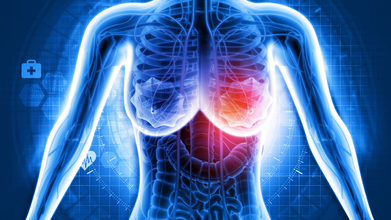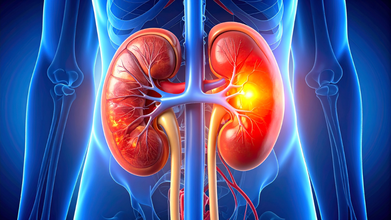- Health Conditions A-Z
- Health & Wellness
- Nutrition
- Fitness
- Health News
- Ayurveda
- Videos
- Medicine A-Z
- Parenting
Migraines In Women: How Hormones Influence Neurological Health

Migraines In Women: How Hormones Influence Neurological Health
For those who have not experienced a migraine, perhaps it would seem just another headache. But for someone like me who has suffered through migraines that will last over a week even with medication, I can definitely tell you that it's much more. The ache is not confined to the head; it's the whole experience. Nausea, sensitivity to light, and throbs so bad it makes simple tasks unbearable. It also comes with an emotional burden—the loneliness and frustration are pretty unbearable. Through the years, realizing how hormones are also implicated in triggering and exacerbating my migraines has helped change the game in my dealing with these episodes.
What are Hormonal Migraines?
Hormonal migraines are caused by fluctuations in estrogen and progesterone, the two main female hormones. These hormones are essential for the reproductive system, regulating menstrual cycles and pregnancy. They also have an effect on brain chemicals, such as serotonin and dopamine, which affect mood and pain perception. When hormone levels fluctuate, such as during menstruation, pregnancy, or menopause, they can destabilize the pathways in the brain, causing migraines.
According to Dr. Shivananda Pai, Consultant Neurology, migraines are more than a neurological disorder. "Migraines represent a complex interplay of genetic, environmental, and hormonal factors. In women, hormonal fluctuations are a critical trigger that amplifies sensitivity to pain," he explains. Hormonal headaches are particularly challenging because they are influenced by multiple life stages, from puberty to post-menopause. Common causes include:
- Menstrual periods: Estrogen levels significantly drop just before menstruation often triggers a migraine.
- Pregnancy: Hormones can act to relieve symptoms or aggravate them during different times of pregnancy.
- Menopause: The hormonal fluctuation during menopause can intensify a migraine, while some women tend to find relief.
- Hormonal therapies: Birth control and HRT tend to level off hormone balances in some individuals but will exacerbate a migraine in others.
Complex Role of Hormones in Women’s Neurological Health
Estrogen and Neurological Health
Estrogen, often called the "hormone of femininity", does more than regulate reproductive functions. It is a powerful influencer of brain health. Estrogen modulates the activity of neurotransmitters like serotonin, which regulates mood and pain perception, and dopamine, associated with reward and pleasure.
During stages of hormonal stability, like in pregnancy's latter months, women may have fewer migraines because of the steady elevation of estrogen. However, a sudden downfall in estrogen destabilizes these chemicals in the brain, sending a heightened sensitivity for migraine triggers.
Menstrual Migraines
The most common form of hormonal migraines is menstrual migraines, which occur in response to the steep decline in estrogen levels just before menstruation. These are typically more intense and less responsive to standard treatment. The timing of these migraines provides clear evidence of the role hormones play in neurological health.
Pregnancy and Hormonal Shifts
Pregnancy is a rollercoaster of hormones. Although many women experience relief from migraines as a result of the constantly elevated levels of estrogen, some women, particularly in the first trimester, worsen. This individual variability is a characteristic of hormonal migraine triggers.
Hormonal Therapies and Management of Migraine
Hormonal treatments, such as oral contraceptives and HRT, have had mixed reviews regarding their use in managing migraine. Some women fare better with the stabilization the treatment provides, whereas others suffer worsening symptoms. This will depend on the nature and dose of the hormones used.
Post-Menopause: Migraine Remission or Continued Struggles?
For most women, menopause brings relief from their migraines. The decline in frequency and severity often accompanies stability in hormone levels. Even so, the susceptibility remains with some towards other forms of triggers including stress and sleep deprivation, not to forget diet-related factors and continues the saga of migraines well after the menopausal stages.
Effect on Neurological Health Due to Hormonal Changes
The relationship of hormones to neurological health goes beyond migraines. Hormonal changes have profound effects on a woman's brain in general.
Mood Disorders: Estrogen helps stabilize mood by regulating serotonin. Its decline at menopause increases the risk of mood swings and depression.
Neurodegenerative Diseases: Estrogen is neuroprotective, stimulating the growth and repair of brain cells. Its absence in post-menopausal women has been associated with an increased risk of Alzheimer's disease and cognitive decline.
Multiple Sclerosis (MS): Hormonal cycles may affect the course of MS, a disease that occurs more frequently in women than in men. Estrogen's anti-inflammatory effects provide transient protection during pregnancy, reducing relapse rates in women with MS.
"The intricate interplay between hormones and neurological health underscores the need for gender-specific treatment approaches," says Dr. Pai.
Managing Hormonal Migraines: Practical Strategies
While hormonal changes are inevitable, several strategies can help manage migraines effectively:
1. Tracking Your Cycle
Understanding your menstrual cycle can help identify patterns and predict when migraines might occur. This knowledge allows for preventive measures, such as scheduling medications or adjusting lifestyle habits.
2. Consulting Specialists
Working with a neurologist or gynecologist can help develop a personalized treatment plan. Options might include hormonal therapies, triptans, or preventive medications tailored to your specific needs.
3. Adopting a Healthy Lifestyle
A well-balanced diet, regular exercise, and stress management are all integral parts of managing migraines. For instance, magnesium-rich foods and hydration can help reduce the frequency and severity of attacks.
4. Exploring Preventive Therapies
For people with severe or frequent migraines, preventive medications, such as beta-blockers or CGRP inhibitors, may be prescribed. These medications stabilize brain activity and therefore reduce the chances of migraine during hormonal fluctuations.
5. Mind-Body Techniques
Techniques like yoga, meditation, and biofeedback can enhance wellness and reduce the debilitating effects of stress-one of the most common migraine triggers.
Research that was once in its embryonic stage continues to shed more light on the role of hormones in migraines and other neurological conditions. Further breakthroughs in genetic testing might enable doctors to predict, at least in a way, how an individual would react to hormonal therapies. The importance of gender-specific approaches is gradually being realized, which involves differentiating between the plight of women with migraines from others.
As Dr. Pai puts it, "Empowering women with knowledge about the hormonal underpinnings of migraines can lead to better, more personalized care. With the right strategies, migraines can be effectively managed, allowing women to lead fuller, healthier lives.
Migraines are not headaches; they are a complex neurological condition that deeply impacts the lives of millions of women. Understanding the role of hormones in triggering and exacerbating migraines is a vital step toward better management and relief.
Awareness, proactive care, and advances in medical research can help women regain their lives from the grip of hormonal migraines. Whether tracking cycles, adopting healthier habits, or seeking tailored medical care, every step taken toward understanding and managing migraines is a step toward empowerment.
Dr Shivananda Pai is a Consultant Neurology at KMC Hospital Dr B R Ambedkar Circle in Mangalore, India.
Brandes JL. The Influence of Estrogen on Migraine: A Systematic Review. JAMA. 2006;295(15):1824–1830. doi:10.1001/jama.295.15.1824
Sacco S, Ricci S, Degan D, Carolei A. Migraine in women: the role of hormones and their impact on vascular diseases. J Headache Pain. 2012 Apr;13(3):177-89. doi: 10.1007/s10194-012-0424-y. Epub 2012 Feb 26. PMID: 22367631; PMCID: PMC3311830.
This AI Tool Predicts Women’s Breast Cancer Risk Up to Four Years

Credit: Canva
An international group of scientists has created an artificial intelligence tool that can estimate a woman’s likelihood of developing breast cancer within the next four years.
The AI tool, known as the BRAIx risk score, analyzes mammogram images to generate an individualized risk assessment and flag women who may face a higher chance of developing the disease.
It may not only show the current risk but also predict the future risk, enabling early detection and treatments for a better outcome.
According to the findings published in The Lancet Digital Health journal, nearly one in 10 women ranked in the top 2 percent of risk by the AI tool were diagnosed with breast cancer within four years. This was despite previously receiving a clear screening result.
“These risk scores enable future development of personalized screening pathways to transform population breast cancer screening and save lives,” said corresponding author Helen M. L. Frazer of the University of Melbourne.
Frazer noted that identifying women who appear cancer-free but carry very high risk -- comparable to those with inherited BRCA1 or BRCA2 mutations -- will unravel both hereditary and non-hereditary causes of breast cancer.
From one-size-fits-all screening to personalization
Breast cancer screening programs have significantly lowered mortality rates -- by roughly 40-50 percent among women aged 50 to 74. However, most screening systems still apply the same approach to all women, regardless of individual risk.
Traditional screening tools use genetics, breast density, and questionnaires to estimate breast cancer risk. On the other hand, new AI-based screening tools, such as BRAIx personalizes screening by gathering information already present in breast scan images to better identify who is at higher risk.
“Our results show that conventional mammographic density is a far weaker predictor of breast cancer risk than the BRAIx risk score, even for interval cancers,” the researchers said in the paper. Interval cancers are aggressive tumors diagnosed after a negative mammogram.
The BRAIx Tool
The BRAIx risk score was developed using mammograms from nearly 400,000 women. To prove its efficacy, the AI tool was tested on data from almost 96,000 women from Australia and then confirmed in an independent Swedish population of over 4,500 women.
The findings showed that:
- The BRAIx risk score estimated breast cancer risk more accurately than the traditional risk factors, such as breast density, country of birth, and even family history.
- For the top 2 percent of women with the highest BRAIx risk score, the probability of a cancer diagnosis within 4 years was 9.7 percent -- a risk level exceeding that typically seen in women with inherited BRCA1 or BRCA2 mutations.
The BRAIx risk score can:
- Make breast screening more personalised,
- Improve early cancer detection,
- Reduce false alarms,
- Save lives without increasing costs
Global Breast Cancer Burden
Breast cancer continues to be the most common cancer among women worldwide.
A recent study published in The Lancet Oncology journal predicted that the number of new cases of the deadly disease will reach more than 3.5 million globally in 2050 -- rising by a third from 2.3 million in 2023.
Annual deaths from the disease will also rise by 44 percent -- from around 764,000 to 1.4 million.
However, not smoking, getting sufficient physical activity, lowering red meat consumption, and having a healthy weight can help prevent over a quarter of healthy years lost to illness and premature death from breast cancer.
COVID Survivors At Nearly Fivefold Risk Of Kidney Failure: Study

Credit: Canva
People who survived a COVID-19 infection can be at significant risk for kidney disease, acute kidney injury, and chronic kidney disease. compared to individuals who were not infected, according to a study.
The study, published online in the journal Communications Medicine, revealed that COVID patients have
- a 2.3-times higher risk of acute kidney injury
- a 1.4-times higher risk of chronic kidney disease
- a 4.7 times higher risk of kidney failure
“While we’re in the post-pandemic era, this shows that COVID-19 history is an important variable when considering the long-term impact of the infection on kidney function and disease,” said first author Yue Zhang, who was at Pennsylvania State University, US, while conducting the study. Zhang is currently a postdoctoral scholar at Johns Hopkins Bloomberg School of Public Health.
How Was The Study Conducted?
For the study, data on over 3 million working-age adults in the United States were analyzed.
The team compared the effect of influenza, another common viral infection that affects kidney health, and people with a history of COVID infection on kidney infections.
Using a machine learning model, the individuals were followed between 180 and 540 days for the emergence of new acute or sudden kidney disease.
The results showed that:
- Both COVID and the flu can worsen kidney health
- Flu caused a mild and temporary effect
- COVID increased the risk of acute kidney injury for a longer duration
- COVID survivors developed kidney disease within a few hours to a few days
- COVID patients had a longer-term chronic and end-stage kidney disease.
How COVID Worsens Kidneys Health
The Penn State researchers explained that kidney cells express high levels of the primary protein receptors that SARS-CoV-2 uses to enter and infect cells. Kidney cells also produce specialized enzymes that help viruses enter cells.
According to Kidney Health Australia, an acute COVID infection can impact the kidneys with fevers and respiratory symptoms, and/or worsening blood sugar control.
The US National Institutes of Health stated that renal dysfunction is an increasing clinical indicator of COVID propagation.
Citing several studies, the NIH said that the most common clinical manifestation is proteinuria -- found in more than half of the COVID patients. In addition, hematuria, elevated blood urea nitrogen, and elevated serum creatinine are other common features in Covid survivors with poor kidney health.
Nasr Ghahramani, Professor of Medicine at Penn State College of Medicine, stressed the need for COVID survivors, especially those with diabetes and high blood pressure, to take "more frequent and more prolonged monitoring of their kidney function" to enable early detection and better outcomes.
Demi Moore’s Drastic Weight Loss Makes Her Look Weak, Netizens Ask If She Took Ozempic

Credits: Instagram
When Demi Moore stepped onto the red carpet at the 2026 Actor Awards, the conversation quickly shifted away from couture and glamour. The 63 year old actor wore a striking black Schiaparelli gown with a dramatic feathered train, but what truly caught public attention was her noticeably thinner frame.
Photos from the event spread rapidly across social media, and many fans expressed worry over what they described as a “skeletal” appearance. Some questioned whether the transformation was intentional. Others speculated whether she may have used Ozempic, the diabetes medication that has become synonymous with rapid celebrity weight loss.
There has been no confirmation that Moore used any weight loss medication. Still, the public reaction reflects a growing anxiety about how quickly bodies can change in the era of injectable weight loss drugs.
The Ozempic Question
Ozempic was originally developed to help manage type 2 diabetes. Its active ingredient, semaglutide, works by mimicking a hormone that regulates blood sugar and appetite. Over the past few years, it has gained immense popularity for its ability to produce significant weight loss.
But as prescriptions surged, so did questions about side effects. One of the biggest concerns is loss of lean mass, which includes muscle.
Research published in Cell Metabolism examined how semaglutide affects body composition. In animal studies, overall lean mass dropped by about 10 percent during weight loss. Interestingly, much of that loss was not from skeletal muscle but from organs like the liver, which can shrink as body fat decreases. Some skeletal muscles did shrink slightly, by about 6 percent on average, while others remained unchanged.
However, other human studies suggest that people taking semaglutide may lose a substantial amount of muscle along with fat. One study found that around 39 percent of the weight lost was muscle. Research on tirzepatide, another injectable drug, showed muscle loss closer to 25 percent of total weight reduction.
It is important to note that muscle loss is not unique to Ozempic. Anytime someone loses a large amount of weight, whether through dieting, surgery, or medication, about one quarter to one third of that loss can come from muscle. When calories are restricted, the body taps into stored energy from glycogen, fat, and muscle.
The problem is that muscle matters. Losing muscle lowers metabolic rate, increases fatigue, and can raise the risk of falls or injury, especially in older adults. For women over 60, rapid weight loss may also affect bone health.
Why Rapid Weight Loss Raises Red Flags
When a public figure appears dramatically thinner within a short span of time, people naturally worry. Rapid weight loss can sometimes signal aggressive calorie restriction, illness, or medication side effects.
Even when weight loss is intentional, the speed matters. Quick changes can strain the body, impact strength, and alter facial structure, which may explain why some fans said Moore looked “different” rather than simply “slimmer.”
Healthy weight loss is not just about a number on the scale. It is about preserving muscle, supporting metabolism, and protecting long term health.
How To Lose Weight Without Losing Strength
If someone chooses to pursue weight loss, whether naturally or with medical supervision, protecting muscle should be a priority.
Prioritize protein. Most adults aiming for fat loss need between 60 to 90 grams of high quality protein daily. Protein supports muscle repair and helps maintain lean mass, especially when appetite is reduced.
Strength train consistently. Resistance training at least three to four times a week signals the body to hold onto muscle. Lifting weights, using resistance bands, Pilates, or bodyweight exercises all help.
Do weight bearing cardio. Walking, tennis, or light jogging can support both bone density and muscle retention.
Stay hydrated. Muscle is largely made of water. Dehydration can worsen fatigue and impair recovery.
Aim for slow, steady loss. Losing weight gradually gives the body time to adapt and reduces the risk of excessive muscle breakdown.
Demi Moore’s appearance has reignited a broader conversation about beauty standards, aging, and the pressures surrounding thinness. Regardless of the cause behind her transformation, the moment highlights an important truth. Sustainable health is about strength, balance, and care, not just shrinking numbers on a scale.
© 2024 Bennett, Coleman & Company Limited

